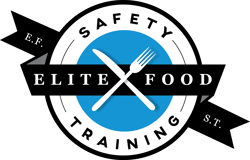Discover how states are maximizing food safety training by adopting FDA recommendations.
The Importance of FDA Recommendations in Food Safety Training
Food safety training is a crucial aspect of ensuring the well-being of consumers and the success of food establishments. The FDA (Food and Drug Administration) plays a vital role in providing recommendations for food safety training.
These recommendations are based on extensive research, scientific knowledge, and industry best practices. They cover various aspects of food safety, including proper handling, storage, preparation, and serving of food.
By adopting FDA recommendations, states can enhance the effectiveness of their food safety training programs and ensure that food establishments adhere to the highest standards of safety. This is essential for protecting public health and preventing foodborne illnesses.
Current State of State Adoption of FDA Recommendations
Currently, only three states have adopted the latest FDA and food safety recommendations for food safety training. While this is a positive step forward, there is still room for improvement.
It is important to note that if a state has multiple agencies responsible for providing regulatory oversight of restaurants or retail food stores, the agency that has adopted the most recent version of the FDA Food Code is considered for counting.
States should prioritize the adoption of FDA recommendations to ensure a consistent and standardized approach to food safety training across the country. This will help in minimizing the risk of foodborne illnesses and maintaining the trust of consumers.
Challenges in Implementing FDA Recommendations at the State Level
While the adoption of FDA recommendations is crucial, there are several challenges that states face in implementing them at the state level.
One of the main challenges is the lack of resources, including funding and trained personnel, to effectively implement and enforce the recommended food safety practices.
Another challenge is the need for coordination and collaboration among different agencies and stakeholders involved in food safety regulation. This is especially important in states with multiple agencies responsible for oversight.
States also have to consider the unique characteristics and needs of their local food establishments and ensure that the FDA recommendations are tailored to suit their specific requirements.
Addressing these challenges requires a comprehensive approach that involves investment in resources, effective communication and coordination among stakeholders, and continuous evaluation and improvement of food safety training programs.
Benefits of States Aligning with FDA Recommendations
States that align with FDA recommendations for food safety training stand to benefit in several ways.
Firstly, adopting FDA recommendations helps in ensuring consistency and uniformity in food safety practices across states. This makes it easier for food establishments to comply with regulations, regardless of their location.
Secondly, aligning with FDA recommendations enhances the credibility and reputation of the state's food safety training programs. This can attract businesses and consumers who prioritize food safety and are more likely to choose establishments that adhere to recognized standards.
Furthermore, adopting FDA recommendations can lead to better public health outcomes by reducing the incidence of foodborne illnesses. This not only protects consumers but also reduces the burden on healthcare systems and the economy.
Lastly, states that align with FDA recommendations can benefit from the expertise and knowledge of the FDA. They can access resources, training materials, and guidance provided by the FDA to enhance their food safety training programs.
Future Outlook for Food Safety Training and State Adoption
The future of food safety training and state adoption of FDA recommendations looks promising. As awareness about the importance of food safety increases, more states are likely to prioritize the adoption of FDA recommendations.
Efforts should be made to overcome the challenges in implementing FDA recommendations at the state level. This includes increasing funding for food safety programs, promoting collaboration among agencies and stakeholders, and providing comprehensive training and support to personnel responsible for enforcement.
In addition, advancements in technology and data analysis can play a significant role in improving food safety training and monitoring. States can leverage these tools to identify areas of improvement, track compliance, and respond effectively to emerging food safety issues.
By maximizing food safety training through the adoption of FDA recommendations, states can ensure the well-being of their residents, support the success of food establishments, and contribute to a safer and healthier food system.


.png)
-2.png)
-2.png)
.jpg)
